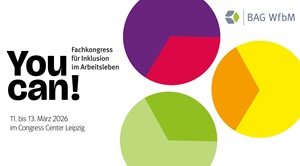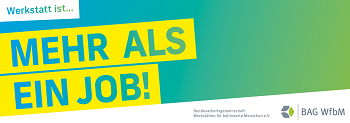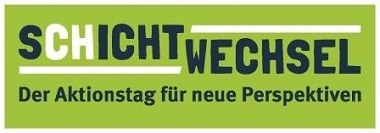Additionally, people with disabilities receive financial support from the state for their livelihood, such as residential and care allowances, and basic security benefits to secure the subsistence level. The remuneration is credited against the basic security benefits, if it exceeds a certain amount.
It is estimated that, including the remuneration from the sheltered workshop, a workshop user has a net income of around € 1.119 per month, including costs for accommodation and heating depending on the individual case. This does not include financial support for additional medical rehabilitation from health insurance. On the other hand, workers who obtain minimum wage have a net income of about € 1.345. Because the minimum wage is so low in Germany, they also often have to top up their income by government welfare aid such as housing allowance.
As soon as a workshop user has been working in a sheltered workshop for a total of twenty years, he or she is entitled to a so-called work incapacity pension. The pension is calculated based on 80 % of the average income in Germany.
It is then – depending on how long the person has been working in a sheltered workshop, which corresponds to the period during which the premiums have been paid – usually higher than the retirement pension of a German average worker. However, as long as the workshop user has not reached retirement age, many factors (e.g. the housing situation, assistance need, other financial assets, etc.) determine whether the work incapacity pension is sufficient or if the person still needs additional financial support.
As explained above (see articel about financial structures of German sheltered workshops), the remuneration system in sheltered workshops is very strictly regulated. The income generated by sheltered workshops through their economic activity must be used as stipulated by law. Altogether it can be said that the income situation of workshop users in Germany is problematic. The system is very complex, strictly regulated and depends predominantly on the economic activity of the individual service provider, which is why BAG WfbM has been calling for a reform which improves and simplifies the payment system.
As mentioned above (see article about political advocacy), this reform was initialized by the German government and is still going on – accompanied by the BAG WfbM. The employee status may be a consequence of this process. One of the proposals of BAG WfbM suggests this, too. But it must be ensured that this does not mean to narrow the disability compensation and protection rights in place for people with disabilities in sheltered workshops.
Union Rights
Criticism is often expressed with the assertion that workshop users in Germany do not have the right to organize themselves in trade unions, to strike and to negotiate collective agreements because of the employee like status.
This criticism does not correspond to the facts and the legal situation. Workshop users are lawfully allowed to organize themselves into unions. The german constitution states that everyone has the freedom of association, Art. 9 Absatz 3 GG, this includes the right to establish and join a union. Therefore, also workshop users are allowed to be members of trade unions and in fact there are publicly known workshop users who own membership in well known german trade unions.
However, in order to be able to negotiate collective agreements and strike accordingly, further requirements must be met under German law by all striking workers:
The strike must be officially led by a trade union. And it must be directed against a collective bargaining partner, i.e. usually against an employers` association. Furthermore, the strike objective must be legitimate. If there is a strike, it must be about influencing the economic and working conditions for workers in a certain way. Usually a strike is aimed against an ongoing negotiation of payment regulations or the striking workers` aim is to implement a collective agreement at all. Following this, it would be legally and theoretically possible for trade unions to lead a strike of workshop users in order to archieve collective agreements. But, and that is fact: so far this has never happened in Germany.































